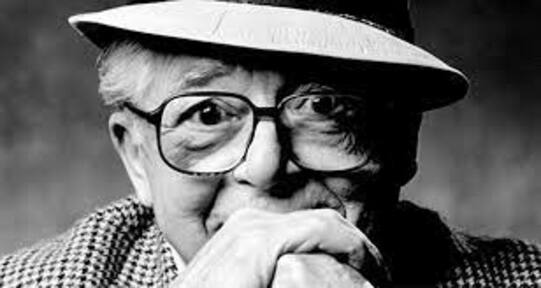On the aging artist – Richard Brooks in The Guardian:
‘Some Like It Hot, Double Indemnity and The Apartment were just some of the classics that made Billy Wilder one of the most successful and lauded directors in Hollywood.
But when, in his 70s, he set out to make a movie telling the story of how an ageing screen siren, Fedora, is lured out of retirement, he was snubbed by the very studios that had once feted him.
The story of the troubled shooting of the 1978 film Fedora was told in a novel by Jonathan Coe in 2020, a book described by the Observer as “a novel to cherish”.
Now Mr Wilder & Me is itself to be turned into a movie with a multi-award winning screenwriter, director and producer. It will also explore Wilder’s journey to central Europe, where members of his family perished in the Holocaust. Wilder himself will be played by Oscar winner Christoph Waltz, who, like the great Hollywood director, was born in central Europe before becoming a star in recent Bond films.’
(…)
‘The new film, like the Coe book, will reflect how Wilder’s return in the late 1970s to central Europe for Fedora took him on a journey into the darkness of his own family history. It was ironic, too, that Wilder, rebuffed by Hollywood for Fedora, had to use German funding for his movie.
By the late 1970s, Wilder was out of fashion with audiences and out of favour with Hollywood. “I had long thought it would be a poignant subject for a book,” says Coe.
Hampton, whose films include Atonement and, most recently, The Father, knew immediately from reading Coe’s book that he wanted to turn it into a film. “I’d first met Billy when talking to American émigrés as a preparation for Tales From Hollywood [Hampton’s 1983 play about the European exiles who moved to Los Angeles]. He was extremely generous with his time, professing also to be very interested in a play about those, like Thomas Mann and Bertolt Brecht, who actually didn’t succeed in Hollywood.” Wilder, of course, did.
“I later wrote to him about the rights over a libretto for a music version of Sunset Boulevard. He instantly replied that by some ‘cruel boo-boo of the capitalist system’ he retained no rights whatsoever. Paramount, which did own them, then turned me down, adding that they were negotiating with somebody else. That turned out to be Andrew Lloyd Webber.”’
(…)
‘Coe himself recalls reading an interview with Wilder, who – while clearly hurt by Fedora not being made by a Hollywood studio – related his feelings about filming in Germany with German funding. “He actually said it was a ‘win-win situation’. If the film was a success, it was his revenge on Hollywood. If it was a failure, it was his revenge on Auschwitz.
“I felt this was such an audacious comment from somebody whose mother had died in a camp that it would have to form the heart of a novel. I felt a compulsion to attempt a portrait of a man who could make a joke like that.”
Disappointingly, Fedora was neither a critical nor a box office success.’
Read the article here.
It’s hard to imagine how Billy Wilder could have gone out of fashion, ‘Sunset Boulevard’ is such a classic and so invincible, so funny, poignant and tragic. It’s bit as saying that Shakespeare has gone out of fashion.
But as with Chaplin it’s possible that Wilder lost his edge in old age. Based on his movies, I would say that he had no illusions whatsoever about Hollywood, so the way he was treated by the studios should not have come as a surprise to him.
Any reason to watch Wilder again is a good reason.
